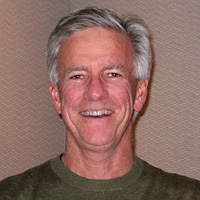Thirty-four years ago this month my wife and I moved to San Francisco. We never left. As with any good relationship, our residence has been governed by the inertia of affection: why change a good thing?
The qualities that make this a remarkable place have been constant: the sun's brightness when the air has been scrubbed clean by the wind, the pattern of house and garden laid like a quilt over the hills. But this, at times, has also been a place shrouded as much in sadness as in fog. In the late '70s, San Francisco was in the midst of changing from a maritime and industrial hub to the center for financial and information services that we know today. The wharves and factories stood empty, but the people who had worked there were still around. A way of life was dying, leaving the survivors to mourn it's passing.
At the same time an exuberant gay community had emerged, but then the plague years descended, and so, although the bars and restaurants remained, the people who had made the scene were disappearing.
Although we build them largely out of the inorganic, our cities must follow the same cycle of growth and decay that mark our own existence. There is always a part of a city that is dying: a business closes, a family moves away, a house is demolished. It is a fortunate place, such as this one, that can midwife newer versions of itself.
In our first days of apartment hunting 34 years ago we were driving through the neighborhood where we now live. I glimpsed an older couple trudging up a hill. Their white hair and steady pace reminded me of mountain goats and I remember thinking that climbing these hills probably kept them spry and healthy. What occurs to me now, as I lug my own groceries up the hill, my hair gone the same color as that gentleman of long ago, is that some newcomer is driving by, looking out his car window, and seeing me, is now thinking the same thing.
The hills remain. It is the people who climb them who change.
